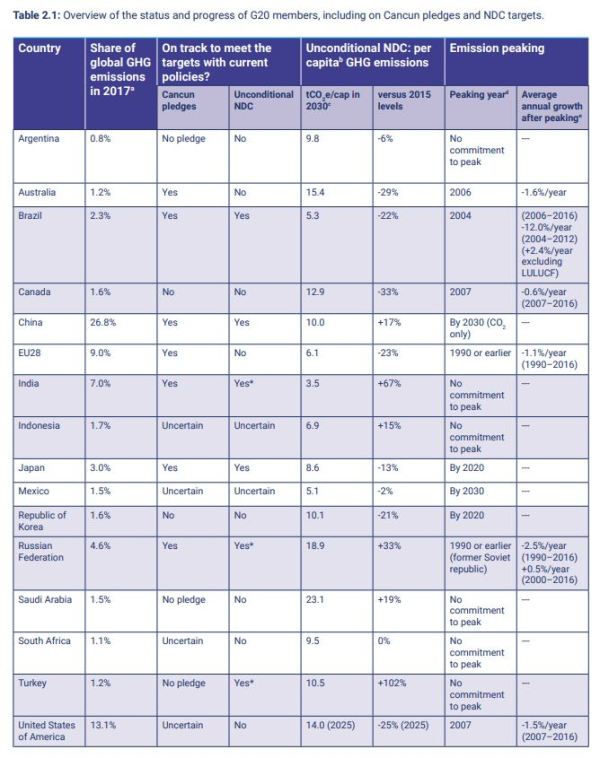As usual, the annual UNFCCC COP meeting reached an agreement after extra time, said nothing substantial, but tried to dress up the failure as something significant. The BBC’s exuberant reporting of the outcome by Matt McGarth seriously misleads readers as to the substance of the agreement when he states
The Katowice agreement aims to deliver the Paris goals of limiting global temperature rises to well below 2C.
I have written to the BBC Complaints Department asking that they make a correction. Within that letter I cite four references that demonstrate why this McGarth’s statement misleading.
First, there is Climate Action Tracker’s thermometer. I do not believe there have been any additional pledges made in the last few days that would cause CAT to lower their projection from 3oC of warming to below 2oC.
Instead I believe that the COP24 Agreement merely tries to ensure that the pledges are effectively implemented, thus ensuring 3oC of warming rather than the “current policy” 3.3oC of warming.
Second, I do not believe there were additional pledges made during the Katowice conference will cut emissions by at least 15 GtCO2e in 2030. This is the minimum difference to be on track to stop global average temperatures exceeding 2oC. . I enclose a screen shot of Climate Action Tracker’s Emission Gap page.

For the original source, I direct readers to the UNEP Emissions Gap Report 2018 , published towards at the end of November. In particular, look to Figure ES.3 on page xviii. The three major points in bold of the Executive Summary (pages xiv to xvii) clarify this graphic.
Third, I also draw readers attention to “Table 2.1: Overview of the status and progress of G20 members, including on Cancun pledges and NDC targets” on page 9 of the full UNEP report. A screenshot (without footnotes) is shown below.

The G20 countries accounted for 78% of the 2017 global GHG emissions excluding LULUCF of 49.2 GtCO2e. This was equivalent 72% of total GHG emissions of 53.5 GtCO2e. It might be worth focusing on which countries have increased their pledges in the past couple of weeks. In particular, those countries whose INDC submission pledges of 2015 imply increases in emissions between 2015 and 2030 of at least 0.5 GtCO2e or more (China, India, Russia, Turkey and Indonesia plus Pakistan, Nigeria and Vietnam outside of the G20), as they collectively more than net offset the combined potential emissions decreases of the developed countries such as the USA, EU, Canada and Australia. In a previous post I graphed this proposed emissions increases in figures 2 and 3. They are reproduced below.


Fourth, is that the UNFCCC press announcement makes no mention of any major breakthrough. The only national government mentioned is that of Scotland, who provided £200,000 of additional funding. Scotland is not an independent Nation, recognized by the United Nations. As a part of the EU, it is not even part of a recognized nation state that makes submissions direct to the UNFCCC. The SUBMISSION BY LATVIA AND THE EUROPEAN COMMISSION ON BEHALF OF THE EUROPEAN UNION AND ITS MEMBER STATES of 6 March 2015 can be found here. By being a part of the EU, in the UNFCCC Scotland is two levels below Liechtenstein or Tuvalu. despite having respectively 140 and 480 times the population. But even if Scotland were both independent of the UK and the EU, as a nation state it would hardly seem fair that it was accorded the same voice as India or China with each have about 250 times the population of Scotland.
In the spirit of objectivity and balance, I hope that the BBC makes the necessary correction.